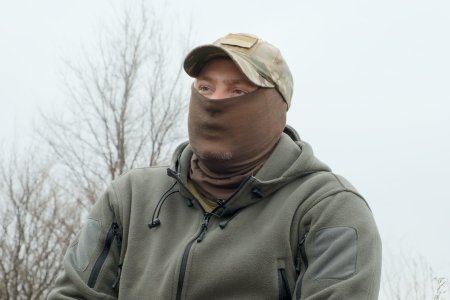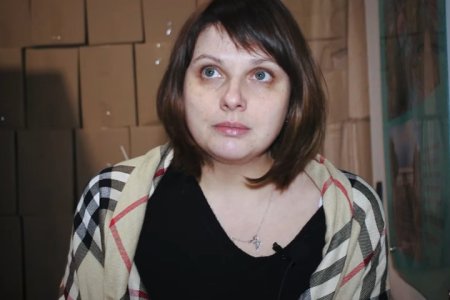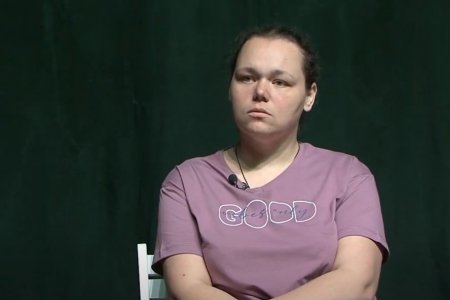Vitalii, what was your life before the war?
I am a design engineer but most of the time I worked as a lecturer at Pryazovskyi State Technical University.
When did you first encounter war?
In 2014 my city was captured by the militants of the so-called “DPR” (Donetsk People’s Republic) under Russian leadership. And it was very tense there until the city was liberated, so accordingly, there was a phase of war when they tried to capture Mariupol and there was a threat that the city would be surrounded by enemies. My wife, small child and I could not stand it and left in September 2014. We came back in 2015. Since then we lived in Mariupol, we knew that there was a front line nearby, but the city was still under Ukrainian control.
We tried in every way to “ukrainise” the city again, we helped the military, in short, we took an active part in volunteering.
Were you prepared for the events that took place on February 24?
We were warned by the military, by analysts that this would happen, I mean we knew and were mentally prepared. Although it was almost impossible to prepare physically and financially.
In December and January we already felt that something would happen, but we were not hundred per cent sure. But after all, on the 24th, what was most predicted, finally happened: rocket attacks, airstrikes on the country, etc...
We hoped that the Russians would realise that we were being helped (by Western countries) and we would resist.
On February 24, in the morning we heard that shelling was taking place all over Ukraine, and then we heard that they were also bombing us. The surroundings of Mariupol were bombed, namely — the Eastern district nearby the village of Shyrokine and the airport. We knew that the city was fortified, especially on that side (where it was bombed), but we expected that we would face difficulties, that we would need help. But we did not expect that the city would be surrounded by Russian troops. So even though we knew there would be war, we did not prepare to leave because my wife and I have elderly parents.
What were your days like before you left Mariupol?
On the first day (of war) I still went to work for half a day, on the second day I tried to go to the shop to buy something because there were already supply problems: everyone tried to buy as much food as possible, and as it turned out later it was a right decision.
Then I realised that I don’t have work anymore and it was hard just to sit at home and do nothing, so I went to my acquaintances at the nearest volunteer centre and there we helped, loaded something. There were also night shifts to protect this volunteer centre. We helped the military and the police as well. They had problems with supplies, there were lack of hot food. And the policemen and firemen worked hard all that time. So they did their job and we helped as much as we could.
After three or four days, the first problems with electricity appeared, which were resolved later. The relevant public services in Mariupol were still running.
But after a while electricity was off, and then water supply was off as well, so we started to look for new sources of water. Because we don’t have public taps like in some other cities. The public services started to deliver water in big cisterns, but there were so huge queues there, so people tried to remember where there were at least some water springs or wells because water was the first necessity.
Then a few days later gas was off. First it was off in the districts where the water pipes were shelled. People started to get cold. Our area was fortunately one of the last where gas supply was off. As for our family, my sister’s family and I lived in the same house, but we had different entrances. When it got cold, we all moved into one room in order to stay together and keep the room warm. We survived three or four days like that, then the temperature dropped and we moved to my parents’ house who lived on the outskirts of Mariupol. They had a wood-burning oven and we could still find some wood back then.
From the moment gas was off, the residents of the city took saws and axes in hands and sawed wood in order to make food and keep warm. It was worse for those who lived in multi-storey buildings because everyone tried to saw or to cook in the yard. When I went to visit my acquaintances, they were wearing hats and jackets and the temperature in the rooms was approaching zero. It was unusual for Mariupol: it was six to ten degrees below zero every night during the week...
After electricity was off, there was a problem with communication, the phones started to “go dead”. It was easier for those who had power generators. I had to look for people I knew and places (where we could charge our phones). I used to charge my phone at the volunteer centre.
Later, phone coneection also started to disappear. At first we thought that the cell phone towers were down, but the military said that there were “jammers” around Mariupol and that was why there was no normal connection. In some places connection appeared, and people informed others and went out there to read the news, to find out what was going on because the information blockade had already started. Now, as you know, there is a complete blockad and Russian media resources there.
At the same time, radio broadcasting from Ukraine ceased, only the so-called “Donetsk People’s Republic” radio stations remained.

How did you get out of the city?
We left the city by my car: four adults and three children. It took 11 hours to drive from Mariupol to Zaporizhzhia. It wasn’t easy: I didn’t expect to drive in winter, the car was parked in a garage with summer tyres, with no fuel or gas reserve. Nevertheless, even though it was freezing and snowing, we still got to Zaporizhzhia on summer tires. Miraculously, we had enough fuel and the last few metres we drove with a red light (fuel alarm system showing the lack of fuel in the car).
In Zaporizhzhia, we were welcomed and fed at the “Epicentre” (Ukrainian home improvement hypermarket chain), where we spent the night.
My brother-in-law had already been waiting for us in Dnipro for two weeks. We lived at his place for almost a week. We also continued to look for options where we could find a job and a place to live. We looked for a safer place anywhere in Ukraine.
Thanks, again, to my acquaintances, we found temporary accommodation in Sambir and in Drohobych (towns in Lviv Region). And then we rented a house in your city. And now we all — seven people — are together again.
What was Mariupol like when you left the city?
When we left, it was actually a miracle that we were not hit by shelling: we and our car were unharmed. We only saw shells falling around. We saw wounded people and people driving somewhere in wrecked cars, we distinguished the sounds, so we understood when shells would hit.
What did we see? Destroyed houses in the centre. We lived in the centre. And my parents lived in the village of Pishchane, behind the seaport.
The city was bombed every day then and we saw shell craters.
The first week, for example: our parents were in Pishchane, there was no phone connection, I went to visit them to check if it had been bombed too, but it was quiet enough there. When I brought my wife’s grandmother there three days later, I had already seen traces of shell hits. So they (Russian troops) had shelled a village where there were no military facilities.
Also, until the moment we left, the seaport was not shelled, but the village, also known for its festival, was massively shelled. In particular, the Rashists (here — wordplay: Ukrainians call Russians like “Rashists” due to a combination of words “Russian” and “fascism”) hit the power station: that is, there was direct bombardment from the sea.
On March 15 I was preparing firewood and water for my parents’ house, because 11 people were already living there together. The next day, the day before we left, we saw convoy of cars leaving the city. As I understood it was not an organised humanitarian convoy, but people organised themselves and decided to leave the city on their own. After that, later, checkpoints appeared there.
I drove along Metalurgiv Street, which runs through the whole city. I saw that all the university’s buildings had been shelled by artillery, it was extremely difficult — I was riding a bicycle — to ride through the centre because roads were covered with shards of glass, in some buildings there was just no window glass at all, somewhere there were half— or completely destroyed houses. To cut a long story short, the whole centre of Mariupol was destroyed. I saw a crater ten metres wide and four or five metres deep where earlier an underground passage had been built.
It was on the tenth (of March). Then we were told that enemy aircraft started to bomb the centre of our city.
When I went to the volunteer centre to find out the latest news, a police officer told me that people were leaving the city at their own risk. So I clarified the possible route. In the meantime, a guy came in who had returned from the musical drama theatre, which had been hit by a shell...
So we decided to try to leave the city, although it was risky to drive through occupied territory.
Despite poor phone connection, we received a message that there was a corridor for private transport along the specified route.
And, in fact, just before I left I saw the city in ruins, and eventually I found out that 70 per cent of the housing stock had already been destroyed...
Who do you have left in Mariupol?
My father and mother. My sister is with them because my parents were ill last year. And my wife’s grandmother. My wife’s father used to live in the village of Talakivka, but we lost contact with him on February 26, and we have not heard anything from him since then...
Why are the invaders doing this to Mariupol?
Apparently they could not take the city as quickly as they were going to, because our military was defending it. The invaders only entered the outskirts, they were pushed out.
This is why they were shelling the civilians, so that there would be panic, so that the military, who also have relatives among the local residents, would be pressured to give up. There were text messages from Russian telephone numbers — both to military and civilians — demanding we surrender.
The Rashists said they were shelling “Azov” military base, but in fact the first “military” targets they shelled were a school and a nine-storey building that were located near the TDF (Territorial Defence Forces) base.
And it is hard to say whether this was done on purpose or by mistake, as 90 per cent of schools in the city have been destroyed, as well as all seven Mariupol’s universities.
Is there any point in conducting negotiations and negotiating peace with Russians?
I know history quite well, and since 2014 I have studied it more thoroughly, so I think it is impossible to negotiate with them. The negotiations that are taking place nowadays are purely strategic and diplomatic, but they (Russians) cannot be trusted in any way.
Translation: International Society for Human Rights (German Section)



